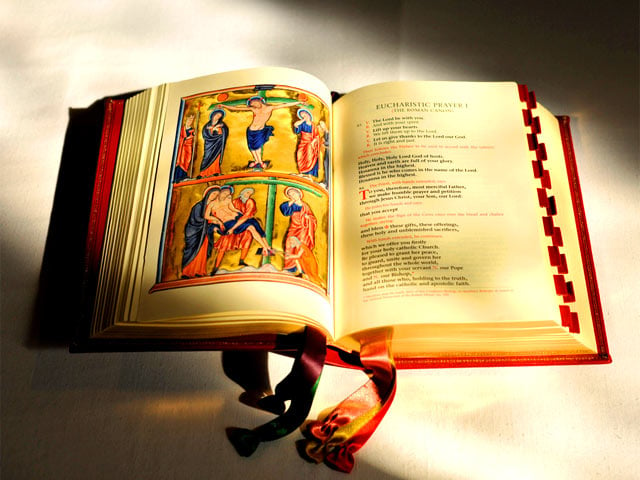- Strona główna
-
Nasza wspólnota
- Archdiocese of Toronto
- Pre-Authorized Giving (P.A.G.)
- Mass Schedules and Devotions
- Donate
- Office Hours
- Catholic Cemeteries
- Parish Forms
- Wolontariat
- Dostępność
- Polityka bezpiecznego środowiska
- Saint Aidan - Our Patron Saint
- Photo Gallery
- Schools in Parish
- Nasza wiara
- Nasze duszpasterstwa
-
Życie parafialne
- Kalendarz wydarzeń
- St. Aidan's Video Links
- Blog Parafialny
- Archiwum wiadomości
- Mass Etiquette and Information
- Ad Orientem News and Facts
- Catholic Links
- Prayers and Announcements
- Luis Dizon Reflections - Archive
- Biuletyn
- Skontaktuj się z nami
- Wyszukaj

The Child of Bethlehem (4th Sunday of Advent)
Click here for this Sunday’s readings
The prophet Micah is one of the twelve minor prophets. He lived in the 8th and early 7th centuries BC, during the reigns of kings Jotham, Ahaz, and Hezekiah (Jeremiah 26:18-19, Micah 1:1). Like most of the prophets who lived during this time, he spoke out against the lawlessness and idolatry of Israel, and his declarations of God’s judgment make up the majority of the book. In the middle of his book, however, he shifts from his Oracles of Judgment to what are termed “Oracles of Salvation,” wherein he declares that God will exalt Jerusalem, cause His law to go forth from Mount Zion, and bring about the Messiah (Micah 4-5).
One of the most interesting features of this text is the fact that Bethlehem is explicitly mentioned as the birthplace of the Messiah. “Ephrathah” signifies the clan name that the inhabitants of Bethlehem went by (Ruth 1:2, 4:11), and the house of David is said to be from that clan (1 Samuel 17:12). Thus we see an indirect affirmation that this Messiah would come from the line of David.
We also get a hint of the Messiah’s divine origin from the fact that God says of Him that “shall come forth for me … whose coming forth is from of old, from ancient days.” The implication here is that the Messiah has existed even before Creation itself, since He comes from of old. Also, the Hebrew Bible reserves the title “Ancient of Days” to Yahweh (cf. Daniel 7:9, 13, 22), so the application of this description to the one coming forth indicates His divinity.
Finally, this Messiah is said to bring about peace. One of the titles given to the Messiah is “Prince of Peace” (Isaiah 9:6), and the covenant He brings about is called the “Covenant of Peace” (Isaiah 54:10, Ezekiel 34:25, 37:26). This is not a mere earthly peace, since Jesus after all did say that He would come not to bring peace but a sword (Matthew 10:34ff). Rather, the peace in view is a more transcendent kind of peace, between God and man. St. Paul refers to this as “the peace of God, which surpasses all understanding,” which he declares “will guard your hearts and your minds in Christ Jesus” (Philippians 4:7).
As Advent comes to a close, we await with eager expectation the Feast of the Nativity, in which all the Messianic prophecies of the past four weeks’ readings find their fulfillment in the birth of Christ, and the promised peace mentioned in Micah comes to us. We are reminded of the Angels’ greeting to the shepherds, which also apply to us who set our hope in Him: “on earth, peace to people of goodwill” (Luke 2:14).
J. Luis Dizon
